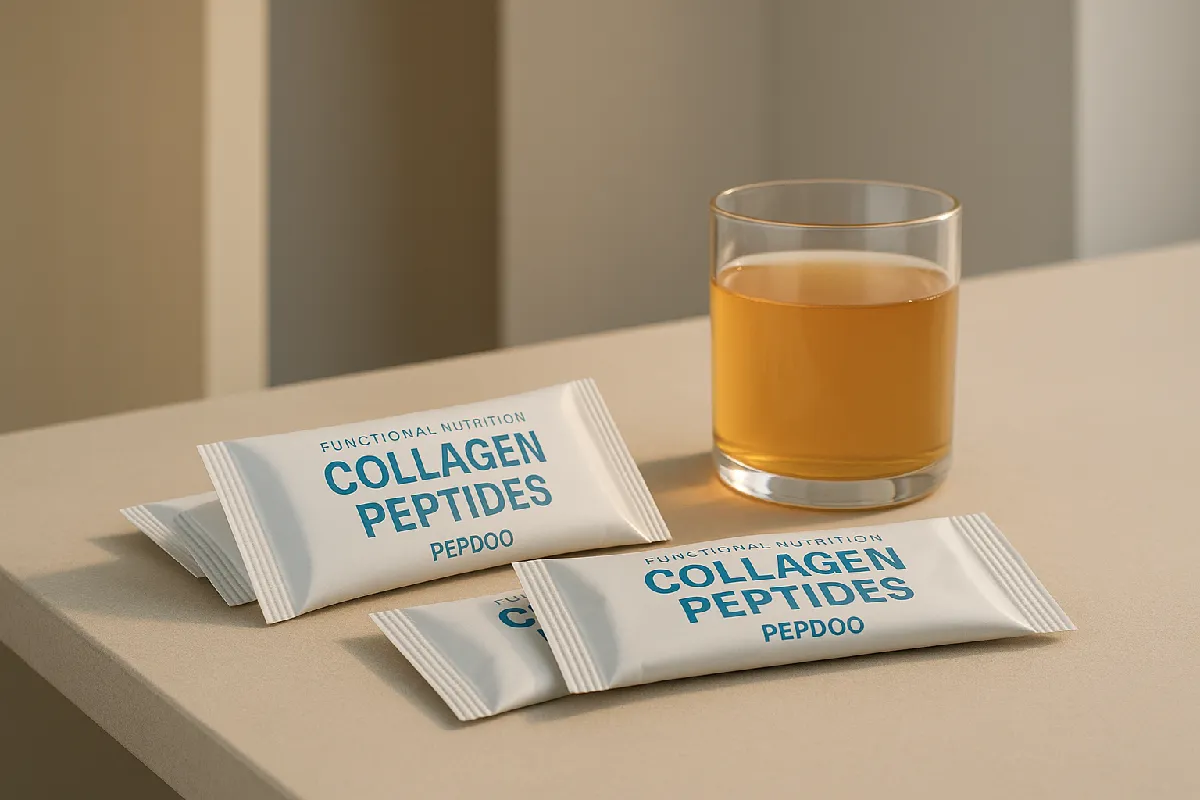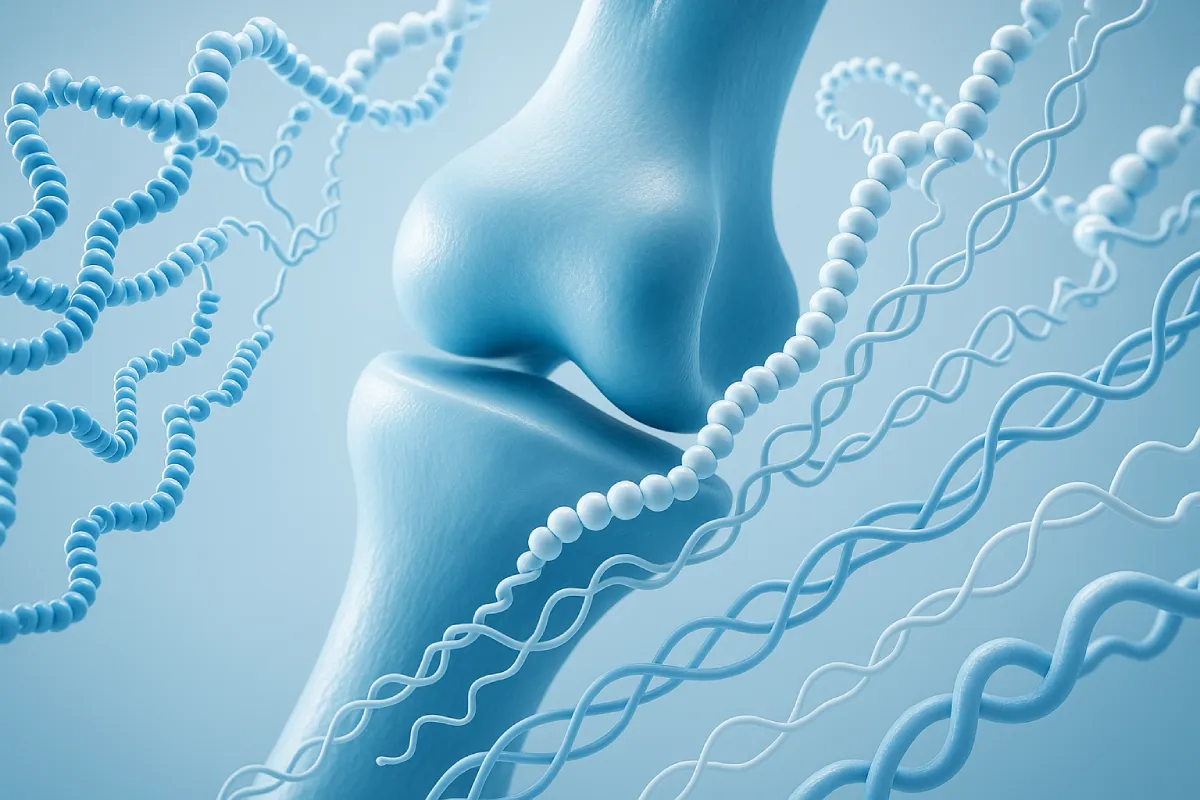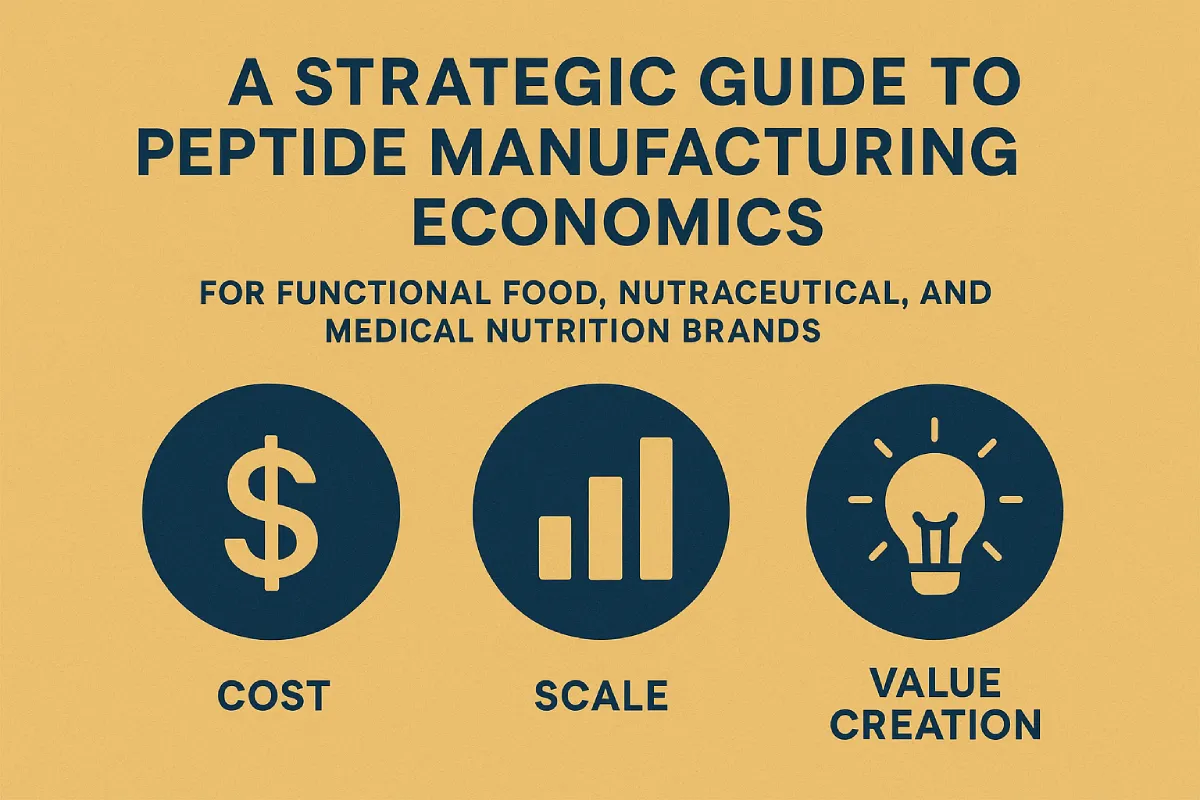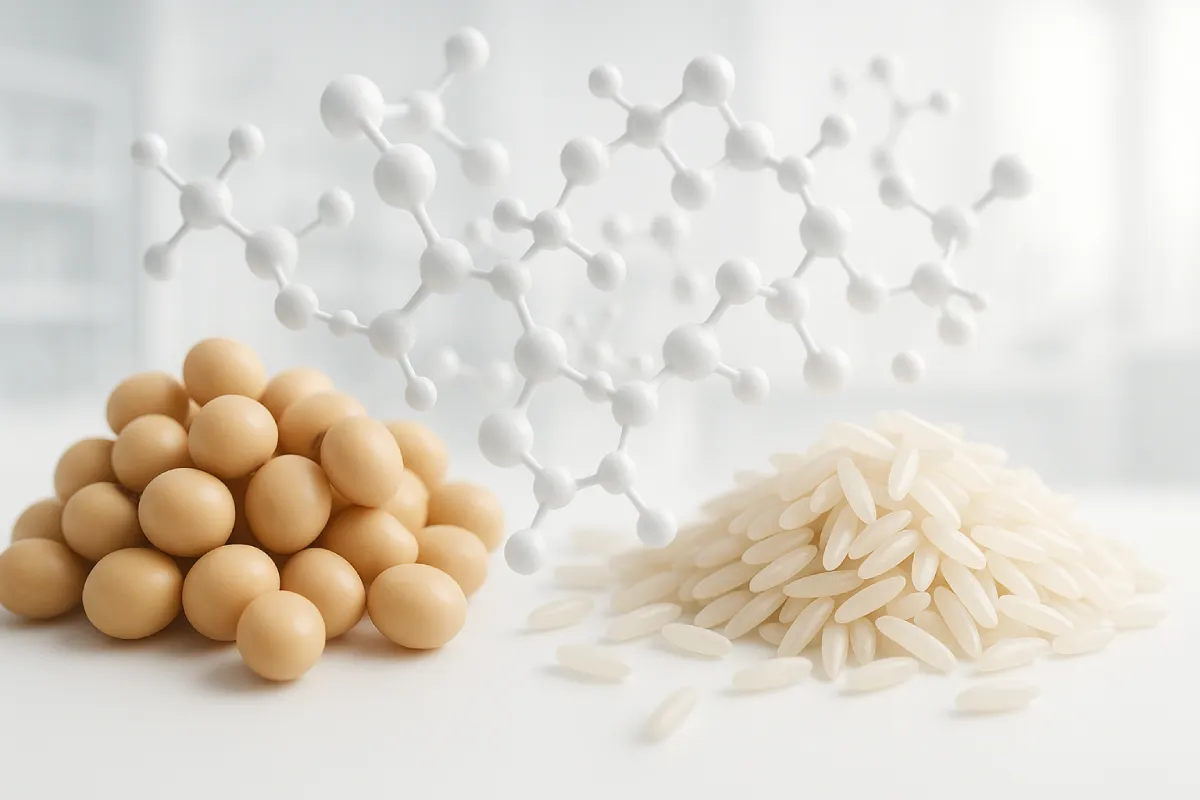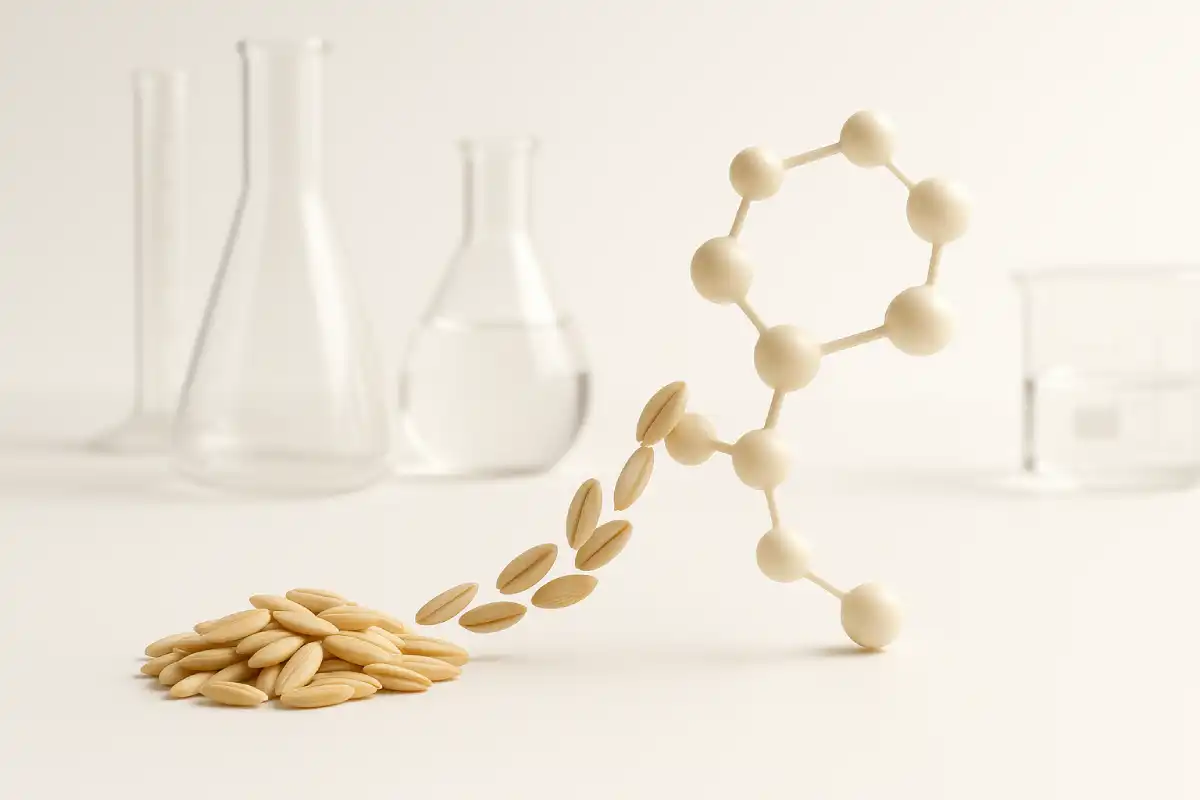Collagen Peptides & the Sports Nutrition Market
The global sports nutrition industry is experiencing rapid growth, projected to exceed USD 50 billion by 2030, fueled by consumer demand for high-performance, science-backed ingredients [1]. Among these, collagen peptides have emerged as a promising bioactive protein source that supports both recovery and performance. Unlike traditional protein isolates, collagen peptides are hydrolyzed into small bioactive fragments, making them highly digestible and easily incorporated into functional foods, beverages, and supplements.
For B2B stakeholders—including functional food brands, nutraceutical companies, and clinical nutrition developers—collagen peptides represent an ingredient that bridges science, innovation, and consumer demand. In this article, we examine the benefits of collagen peptides for sports recovery and performance, the supporting clinical evidence, and opportunities for product innovation.
Collagen Structure & Peptide Technology
Collagen is the most abundant protein in the human body, forming the structural framework of connective tissues such as skin, tendons, ligaments, and cartilage [2]. Through enzymatic hydrolysis, collagen can be broken down into low molecular weight bioactive peptides (average <2,000 Da), which exhibit higher solubility, faster absorption, and greater bioavailability compared to native collagen or gelatin.
At PEPDOO®, we utilize advanced multi-enzyme hydrolysis combined with intelligent bioprocess control, ensuring consistent peptide profiles, high purity, and excellent solubility. As a full-category peptide manufacturer, we provide B2B partners with collagen peptide solutions from multiple sources—marine, bovine, poultry, and plant—offering tailored options for different formulations and market needs.
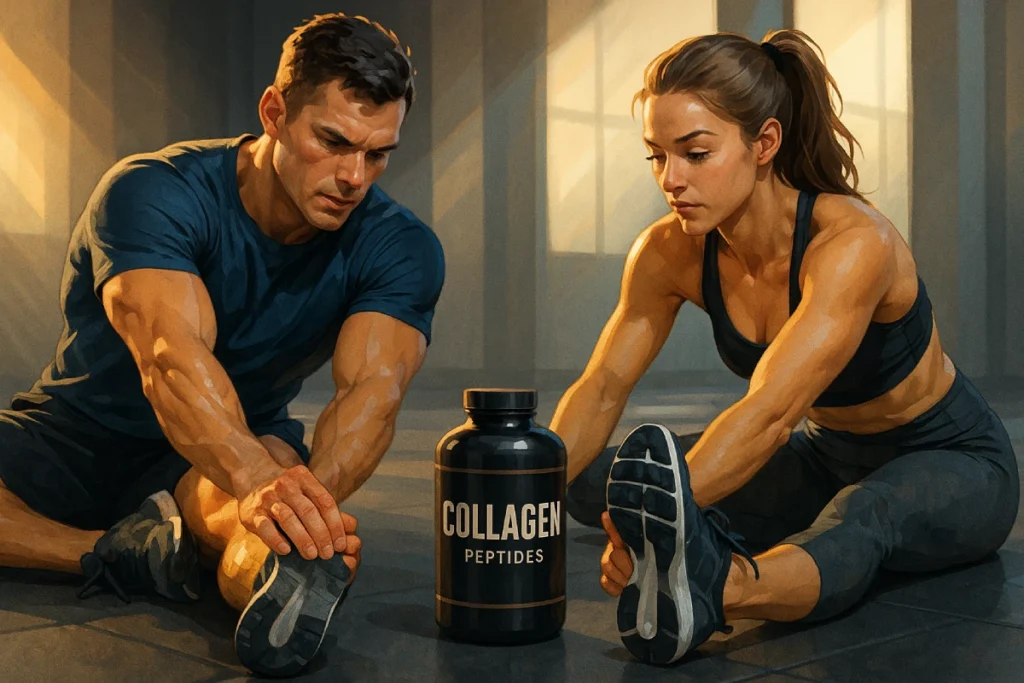
Role of Collagen Peptides in Sports Recovery
Muscle Repair and Reduced DOMS
Post-exercise, muscle fibers undergo micro-damage that requires adequate protein and amino acids to repair. Collagen peptides, rich in glycine, proline, and hydroxyproline, stimulate collagen synthesis in muscle-tendon junctions and connective tissues, helping reduce delayed onset muscle soreness (DOMS) [3].
Joint and Cartilage Support
Athletes and fitness enthusiasts are at higher risk of joint injuries. Collagen peptides have been shown to promote cartilage regeneration, reduce pain, and improve mobility in physically active individuals [4]. This makes them ideal for sports recovery ingredients in functional foods and supplements targeting joint health.
Inflammation and Immune Modulation
Exercise-induced inflammation can delay recovery. Collagen peptides exhibit immunomodulatory properties, helping regulate cytokine activity and accelerating return-to-training readiness [5].
Case Study: An international sports nutrition brand incorporated collagen peptides into its post-workout recovery beverage. Within 12 months, product sales grew by 25%, with athletes reporting reduced soreness and faster recovery.
Performance Benefits Beyond Recovery
Strength and Endurance Enhancement
Collagen peptides do not compete with whey or plant proteins but complement them by providing unique amino acid sequences. Studies suggest that collagen supplementation improves lean body mass and handgrip strength, enhancing performance in endurance and resistance training [6].
Energy Metabolism
By supporting connective tissue integrity and reducing fatigue-related injuries, collagen peptides indirectly improve energy efficiency during prolonged training sessions.
Aesthetic Benefits
Sports nutrition is no longer just about physical performance—it also touches on athletic appearance and skin health. Collagen peptides help maintain skin elasticity, which resonates with athletes and fitness-conscious consumers who value holistic well-being.
Case Study: A European functional beverage company introduced a collagen-infused hydration drink for endurance athletes. Consumer feedback highlighted improved recovery and aesthetic appeal, leading to a 60% repurchase rate in its first year.
Clinical Evidence & Research Insights
Scientific research has increasingly validated the benefits of collagen peptides in sports contexts:
- Muscle recovery: A 12-week trial showed collagen peptide supplementation improved muscle strength and body composition in recreationally active men [7].
- Joint health: Studies on athletes with activity-related joint pain reported significant improvements in mobility and reduced discomfort after collagen peptide intake [8].
- Inflammation control: Research indicates collagen peptides help regulate inflammatory markers, reducing exercise-induced oxidative stress [9].
At PEPDOO®, we hold one of the largest portfolios of small-molecule peptide patents in China and actively collaborate with leading universities to advance peptide clinical research. Our role as a peptide industry standards setter ensures that partners receive scientifically validated, regulatory-compliant solutions.
Application in Sports Nutrition Formulations
Collagen peptides are highly versatile and can be incorporated into multiple product formats:
- Sports beverages: Ready-to-drink (RTD) collagen protein waters and electrolyte blends.
- Protein powders: Standalone collagen protein or blended with whey, soy, or pea proteins.
- Bars & gels: Collagen-fortified recovery snacks.
- Medical nutrition: Tailored applications for rehabilitation and clinical recovery.
Formulation advantages include neutral taste, clear solubility, and excellent heat stability, making collagen peptides a robust option for product developers.
Case Study: A leading Asian functional food brand partnered with PEPDOO® to launch a collagen peptide RTD beverage. The product received an innovation award in Southeast Asia and rapidly gained traction among athletes and active consumers.
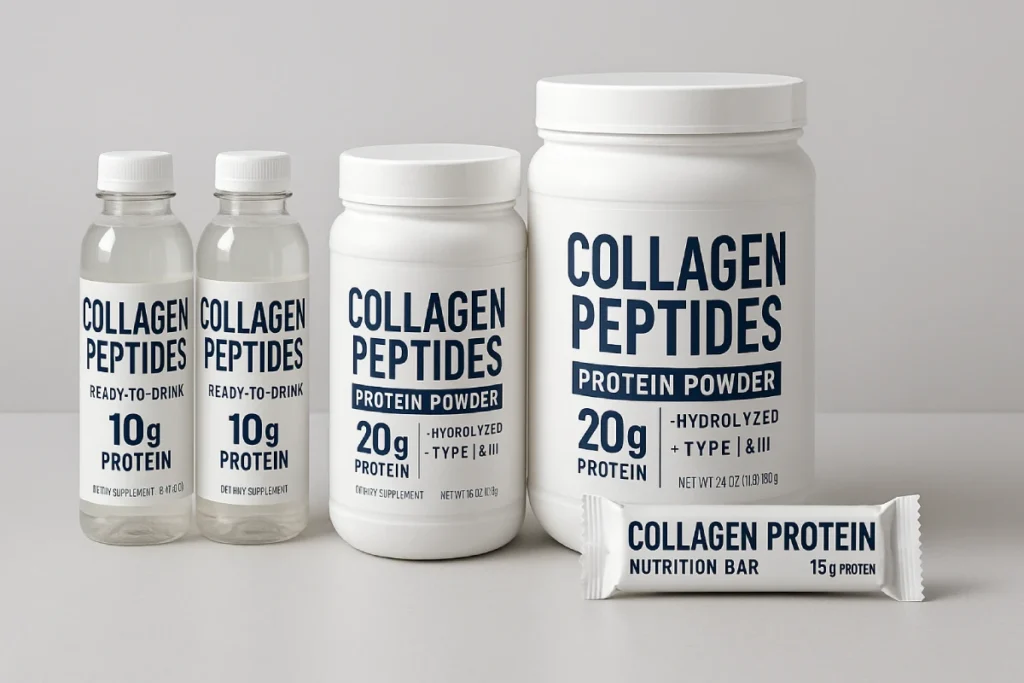
Why Source from a Trusted Collagen Peptide Manufacturer
For B2B buyers, the choice of raw material supplier is critical. Collagen peptides must meet strict quality standards, batch-to-batch consistency, and global certifications (ISO, FSSC, NSF, HALAL, KOSHER).
PEPDOO® is uniquely positioned as a:
- Full-category peptide manufacturer with capabilities across marine, bovine, poultry, and plant sources.
- Industry standards setter in China’s peptide sector.
- Patent leader with internationally recognized small-molecule peptide technologies.
- Trusted partner with global case studies across functional foods, nutraceuticals, and medical nutrition.
By sourcing from us, brands gain not only high-quality raw materials but also R&D collaboration opportunities for differentiated product innovation.
Market Outlook & Opportunities for Brands
Sports nutrition is expanding beyond professional athletes to include mainstream consumers, aging populations, and women’s wellness markets. Future opportunities for collagen peptides include:
- Personalized nutrition (age- and gender-specific formulations).
- Medical and clinical nutrition (rehabilitation support).
- Functional beverages with added cognitive or metabolic benefits.
Forward-thinking brands can differentiate by partnering with peptide innovators who combine cutting-edge science with large-scale production capabilities.
Strategic Takeaways & Partnering Opportunities
Collagen peptides are more than just another protein—they are bioactive sports recovery ingredients with clinically proven benefits in muscle repair, joint protection, and overall performance enhancement.
For B2B decision-makers, the strategic question is not whether to use collagen peptides, but how to leverage partnerships with trusted manufacturers to accelerate product innovation.
At PEPDOO®, we combine the strengths of being a full-category peptide supplier, a Chinese industry standards leader, and a patent-driven innovator with internationally advanced peptide technologies. This makes us the ideal partner for sports nutrition brands seeking differentiation and growth.
Elevate Your Sports Nutrition Portfolio
Partner with PEPDOO®—a full-category collagen peptide manufacturer and patent leader in China. Access high-bioavailability peptides for functional foods, beverages, and sports recovery supplements.
Request Samples & CollaborateFAQ
Yes. We provide tailored collagen solutions (marine, bovine, poultry, plant-derived options) with controlled molecular-weight profiles, solubility and sensory optimization to meet targeted sports applications—RTD drinks, protein powders, bars, or clinical nutrition. R&D co-development and pilot trials are available to validate efficacy and stability.
Our facilities operate under international food-safety and quality systems, including GMP, ISO/FSSC standards, HACCP, and we support Halal/Kosher where required. Each lot is accompanied by COA, MSDS, allergen statements and traceability documentation suitable for global market entry.
We supply technical dossiers summarizing relevant clinical studies, mechanism data and stability results. As a patent-holding manufacturer with university collaborations, we can support client studies or provide references to peer-reviewed trials that inform dosage and claim substantiation.
Industry practice varies by application; commonly used clinical/formulation ranges are in the low-gram scale (e.g., single-digit to mid-teens grams per day) depending on target (muscle recovery, joint support). We recommend formulation-specific R&D to define optimal dose, timing and matrix for your product.
High-quality collagen hydrolysates generally offer excellent solubility, neutral taste and good thermal stability. We provide technical guidance on pH, ionic strength, flavor masking and emulsification to ensure clarity, mouthfeel and shelf stability in RTD and processed formats.
We support pilot sampling and small development batches, and scale to commercial volumes with predictable planning. Lead times depend on spec and certification needs (stock items ship faster; custom specs require pilot → scale timeline). Our commercial team will provide detailed MOQ and lead-time estimates per project.
Yes. We provide complete technical packages (COA, stability data, GMP certificates, allergen & origin statements) and can assist with dossiers required for EU, US, and Asia-Pacific submissions; bespoke regulatory support is available for clinical or novel-ingredient pathways.
We are a full-category peptide manufacturer and a recognized industry standard setter in China, with a strong portfolio of small-molecule peptide patents and internationally advanced production technologies. This enables consistent lot quality, robust R&D collaboration and tailored solutions that accelerate product differentiation for B2B partners.
Contact our B2B team with your product brief (application, target claims, desired format). We provide specification sheets, sample quotes, and a proposed development roadmap including pilot tests, stability trials and scale plans.
References
- Mordor Intelligence. (2023). Sports Nutrition Market – Growth, Trends, and Forecasts (2023 – 2028).
- Ricard-Blum, S. (2011). The collagen family. Cold Spring Harbor Perspectives in Biology, 3(1), a004978. https://doi.org/10.1101/cshperspect.a004978
- Zdzieblik, D., Oesser, S., & Gollhofer, A. (2015). Improvement of muscle strength and body composition by supplementation with collagen peptides in young men: A randomized controlled trial. British Journal of Nutrition, 114(8), 1237-1245.
- Clark, K. L., Sebastianelli, W., Flechsenhar, K. R., Aukermann, D. F., Meza, F., Millard, R. L., … & Deitch, J. R. (2008). 24-week study on the use of collagen hydrolysate as a dietary supplement in athletes with activity-related joint pain. Current Medical Research and Opinion, 24(5), 1485-1496.
- Bello, A. E., & Oesser, S. (2006). Collagen hydrolysate for the treatment of osteoarthritis and other joint disorders: A review of the literature. Current Medical Research and Opinion, 22(11), 2221-2232.
- Shaw, G., Lee-Barthel, A., Ross, M. L., Wang, B., & Baar, K. (2017). Vitamin C–enriched gelatin supplementation before intermittent activity augments collagen synthesis. American Journal of Clinical Nutrition, 105(1), 136–143.
- Zdzieblik, D., et al. (2015). Improvement of muscle strength and body composition by supplementation with collagen peptides in young men: A randomized controlled trial. British Journal of Nutrition, 114(8), 1237-1245.
- Clark, K. L., et al. (2008). 24-week study on the use of collagen hydrolysate as a dietary supplement in athletes with activity-related joint pain. Current Medical Research and Opinion, 24(5), 1485-1496.
- Schunck, M., Zdzieblik, D., & Oesser, S. (2018). The effect of collagen peptide supplementation on exercise-induced muscle damage and inflammation: A randomized controlled trial. Nutrients, 10(6), 849.


